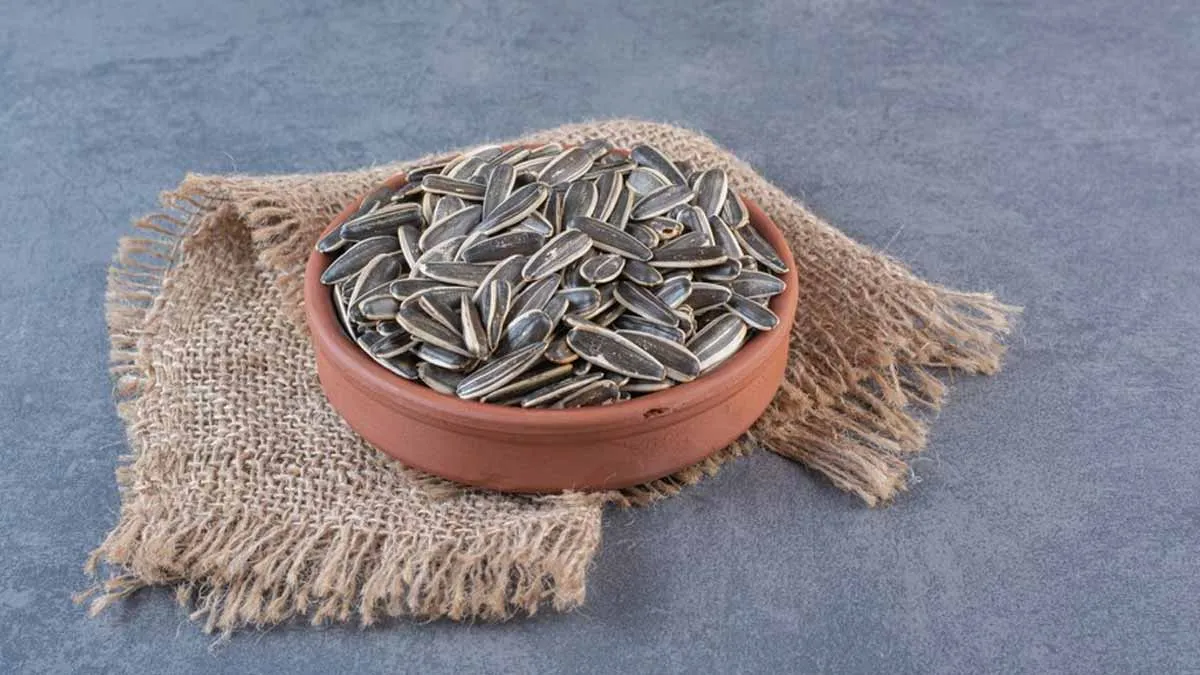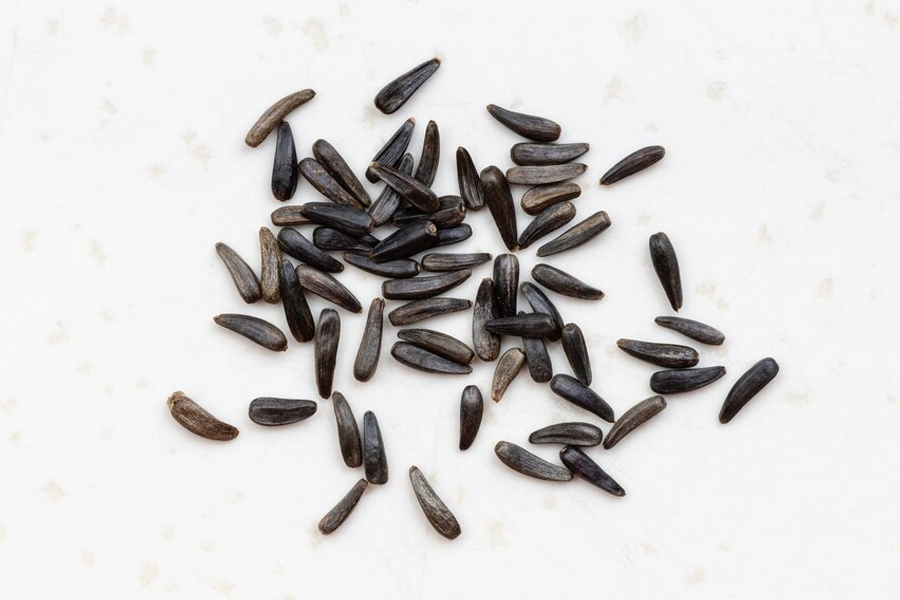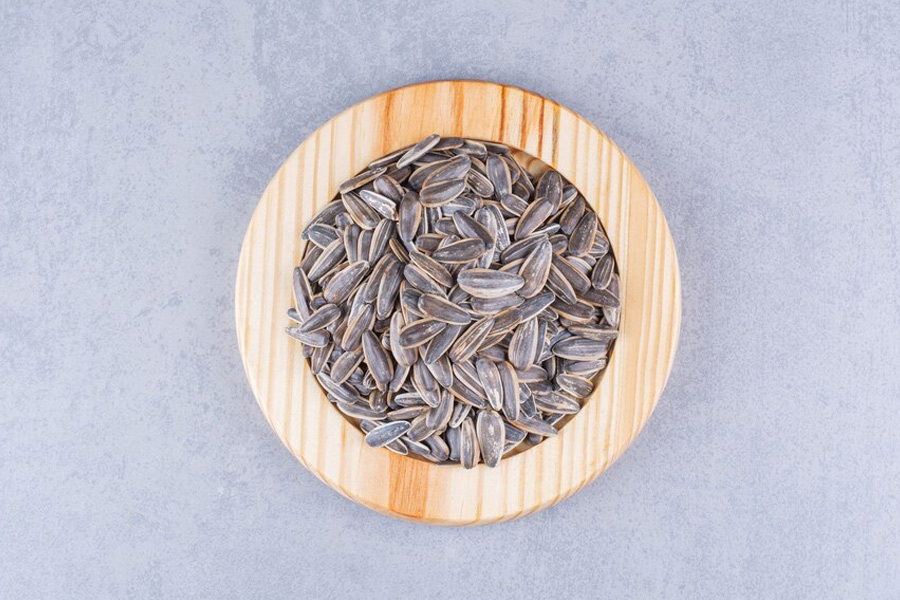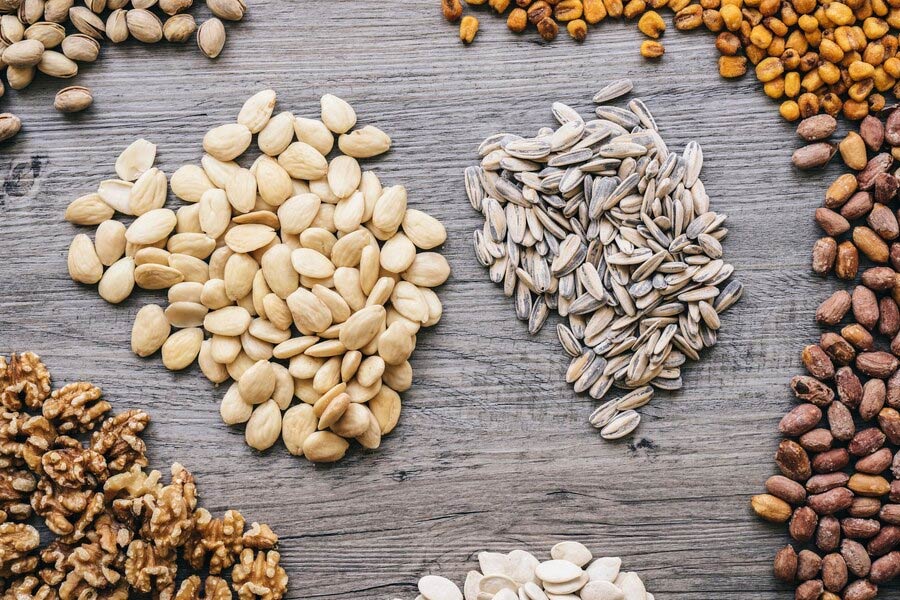
Sunflower seeds are a powerhouse of nutrients that offer several health benefits. They are particularly good for your heart, as they are rich in heart-friendly nutrients, like healthy fats and antioxidants. What's fantastic about them is that they can be easily incorporated into your diet. Read on to learn more about them, their benefits, and ways to add them into your diet.
Table of Content:-
Why Sunflower Seeds Are Good For Your Heart

Sunflower seeds are considered beneficial for heart health due to their high nutritional value. They have been shown to lower Low-Density Lipoprotein (LDL) or "bad" cholesterol levels, potentially reducing the risk of cardiovascular disease. Research also suggests that regular consumption of sunflower seeds can reduce triglycerides, a type of fat that can be harmful if it exceeds normal levels. Take a look at the heart-friendly nutrients in sunflower seeds:
Also Read: 8 Health Benefits Of Having Sunflower Seeds Everyday
Healthy fats
Sunflower seeds are rich in unsaturated fats, including linoleic acid, which helps lower bad cholesterol (LDL) and raise good cholesterol (HDL) levels. This balanced cholesterol profile is crucial for maintaining heart health and reducing the risk of heart disease.
Magnesium

This essential mineral plays a vital role in regulating blood pressure, supporting healthy heart rhythm, and keeping blood vessels relaxed. Adequate magnesium intake is linked to a lower risk of hypertension and cardiovascular events.
Potassium
Another key mineral for blood pressure control, potassium helps balance sodium levels in the body, reducing strain on the heart.
Fibre
Sunflower seeds are a good source of dietary fibre, which aids in lowering cholesterol levels, improving digestion, and promoting overall heart health.
Plant sterols
These compounds can help block the absorption of cholesterol in the gut, further contributing to healthy cholesterol levels.
Also Read: Healthy Diet: Seed-Based Smoothies For Hormonal Balance And Weight Management
How To Add Sunflower Seeds To Your Diet

The versatility of sunflower seeds makes it easy to incorporate them into various meals and snacks. Here are some creative ideas:
- Enjoy sunflower seeds as a snack, but be mindful of portion sizes, as they are calorie-dense.
- Sprinkle sunflower seeds on your salads for added crunch, flavour, and nutritional value.
- Add a spoonful of sunflower seeds to your oatmeal or yoghurt.
- Add sunflower seeds while baking bread, muffins, or cookies.
- Blend sunflower seeds into your smoothies.
- Try sunflower seed butter; spread it on toast and crackers.
Conclusion
While sunflower seeds are generally healthy, it's important to consume them in moderation. They are high in calories, so eating too much could contribute to weight gain. Also, some individuals may have allergies to sunflower seeds. Therefore, be mindful of your health status. If you experience any adverse reactions after consuming them, stop eating them and consult with your doctor.
Also watch this video
How we keep this article up to date:
We work with experts and keep a close eye on the latest in health and wellness. Whenever there is a new research or helpful information, we update our articles with accurate and useful advice.
Current Version